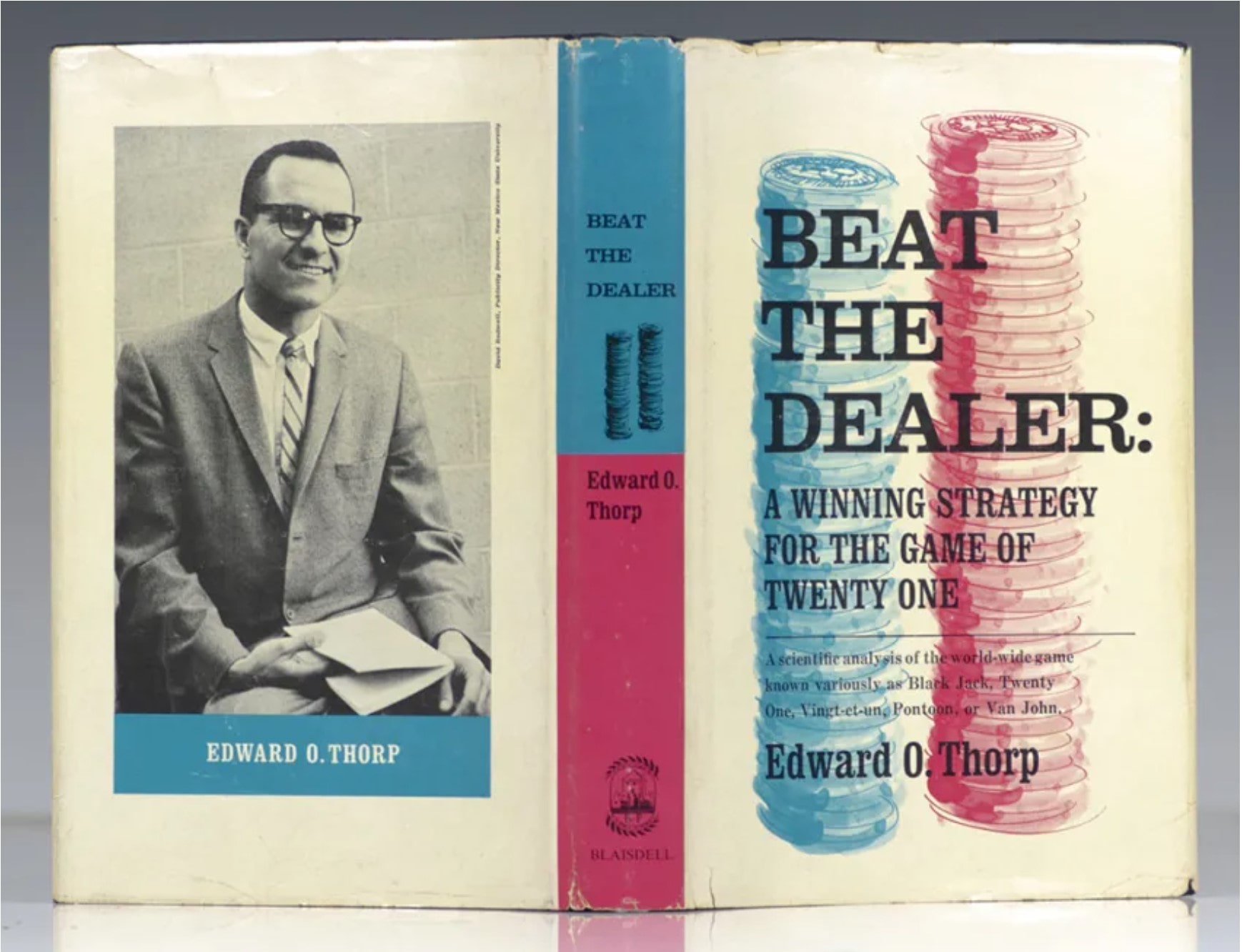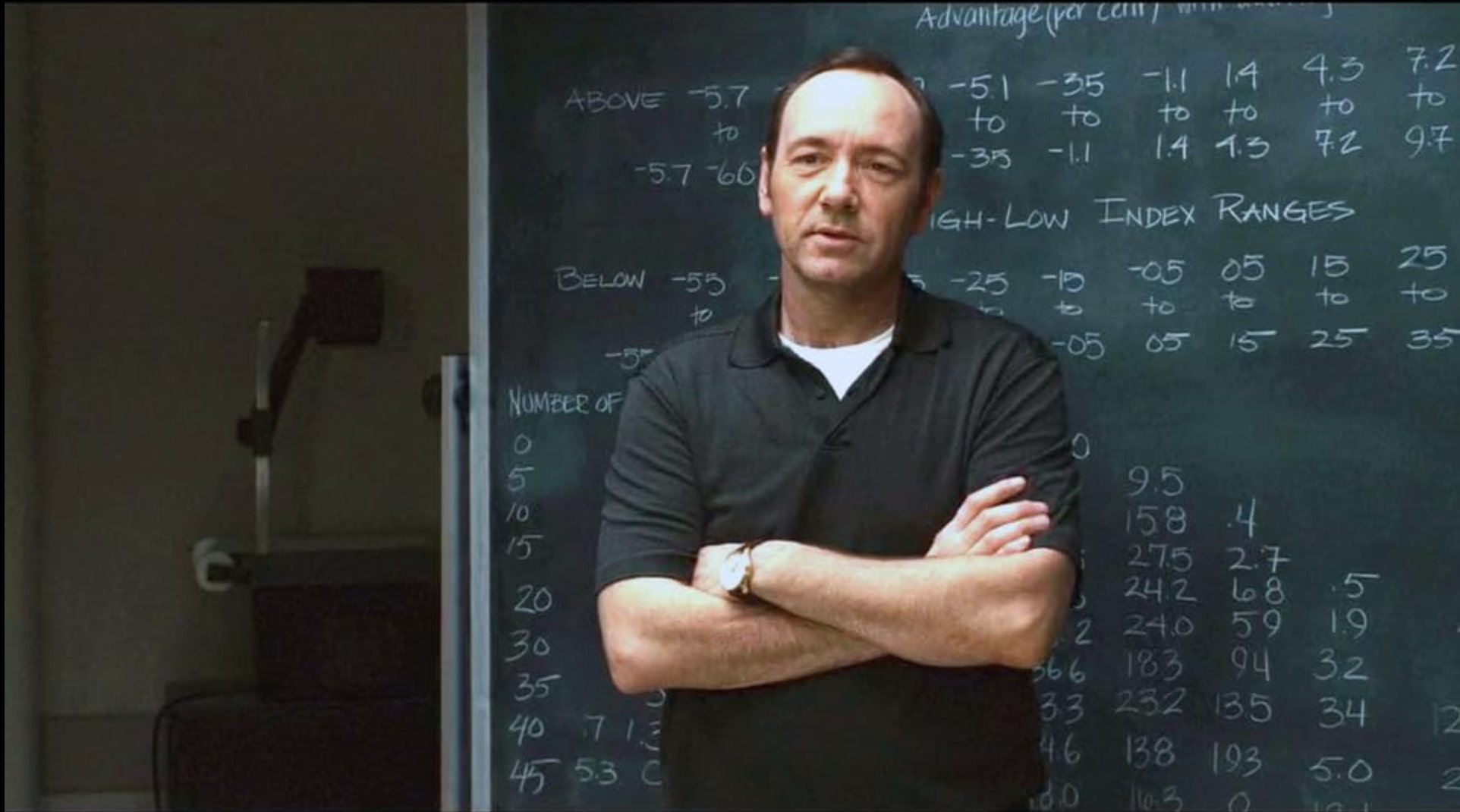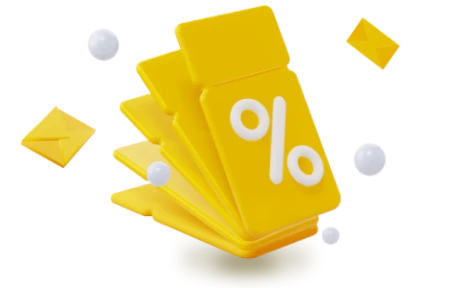Card Counting Blackjack Strategy: Legal or Not?
As one of the most well-known blackjack strategies, counting cards is a term virtually any table game player will be familiar with — even as a beginner. The main question many ask is: “is blackjack card counting legal or not?” and that is what we’re going to explore.
In this article, you’ll discover what counting cards involves, interesting facts relating to the history of this famous strategy, and the pros and cons of incorporating it in your blackjack gameplay. And, of course, we will be answering whether counting cards (including online blackjack card counting) is legal.
The History of Counting Cards and Where it Stands Today
Here are some key facts about the origins of the blackjack card counting strategy and incidences of it being used in modern-day casinos.
- Blackjack card counting can be traced back to the 1960s, when mathematician Edward O. Thorp published his groundbreaking book, Beat the Dealer in 1962. This book paved the way for modern counting card strategies, creating the system in which every card has its ‘value’.
- Edward O. Thorp’s strategies focused on statistical analysis and probability theory. He proposed that players could win at blackjack through more than just luck, utilising calculations and sharp observations to gain an advantage.
- The MIT Blackjack Team scandal is one of the most famous counting card controversies. Consisting of students from leading colleges, including Harvard Business School and Massachusetts Institute of Technology, the team used a high-low card counting system for blackjack to win millions of dollars in casinos across the globe.
- The MIT Team was ultimately banned from multiple casinos.
Edward O. Thorp’s Beat the Dealer 1st edition, 1962
What is Card Counting in Blackjack?
In contrast to Edward O. Thorp’s complex techniques, modern counting card strategies have been simplified since 1962. A simpler strategy, utilised by many blackjack players and referred to as the ‘plus-minus count’, is outlined below.
Plus-Minus Count
Cards are divided into three groups, each with their particular count value:
- +1 for small cards (from 2 to 6)
- 0 for so-called ‘neutral’ cards (from 7 to 9)
- -1 for larger cards (from 10 to aces)
In this system, the sum of all cards is equal to zero. This rule also applies to multi-deck games. Players implementing this blackjack card counting strategy will count individual cards by subtracting or adding their value.
If the overall count turns out positive, there’s a higher chance that large cards are more likely to be drawn. This favours the player. If the count is negative, this doesn’t favour the player, as smaller cards are likely to arise.
Kevin Spacey explains the card counting principle in 21, Secret Blackjack Club Scene. IMDB
‘It’s the most popular card game in the world.’
‘It’s a game of memory. Cards drawn are the past, ones to come are the future.’
‘And the best part, it’s beatable.’
(Robert Luketic, 21, 2008.)
How to Achieve a ‘True Count’
The plus-minus count can only get you so far. To establish the real count of the game, players must divide their current count by the number of decks. This is where it can get complicated, requiring blackjack card counting practice to become more natural at mastering this technique.
Take this example: 6 decks are in the game, 1 has already been played, and the current count of played cards is +15. If you divide 15 by 5 (the number of remaining decks), the true count is 3.
Pros and Cons of Counting Cards
There are plenty of clear pros and cons for this technique, including:
- Pros
- Simple in theory and easy to grasp
- When done correctly, it can give players a significant upper hand in the game
- So long as you’re willing to put in the time and effort, anyone can master counting cards. You don’t have to be naturally skilled at mathematics
- Cons
- Frowned upon by many casinos due to disrupting their profitability if players win large sums of money
- Ethics are questionable
One of the main pros of blackjack card counting is its simplicity. That is, it’s a very easy concept to understand. However, it is the execution that makes it challenging, as very fast mathematics is tough for many players to grasp. This makes a blackjack card counting trainer a good idea for beginners. Even if you’re not naturally skilled at mental arithmetic, you can still learn how to count cards successfully, provided you have the right work ethic and support.
While we do consider the simple nature of modern counting card techniques to be a pro, some expert players may view these simplified strategies as a negative. Edward O. Thorp was far more specific in defining the card values, considering an ace better than 10 and 5 worse than 2. But popular modern-day methods ignore this, segmenting all cards into just 3 groups.
One of the clearest cons of a blackjack card counting strategy is that land-based casinos simply don’t welcome it. Some casinos consider it undermines their edge, shunning players they think are using it. In fact, many players who have won huge sums of money through counting cards have faced permanent casino bans. The 1990s MIT Blackjack Team is a prominent example.
Finally, another drawback of counting cards is simply the ethics behind it. Players may wonder whether using it is really fair during a legitimate game, when others might not be aware of the technique. Some question whether counting cards causes an imbalance in the blackjack playing field.
So, illegal or not?
In short, counting cards in blackjack is not illegal in the UK, the US, or other countries worldwide. However, it’s frowned upon by many casinos due to its winning potential if a player becomes very skilled. Millions upon millions have been won by counting card professionals, which contributes to the controversy that surrounds it.
But, despite the negative view many casinos have, it can hardly be called cheating and remains legal. Practising with card counting online blackjack techniques first is highly recommended for beginners before tackling a physical casino.
As Ken Uston famously said in his 1986 book, Ken Uston on Blackjack:
Card counting is a skill. It’s not cheating. It’s not illegal. It’s simply using your mind in a game where the rules permit you to use your mind.
References
- First edition of Edward Thorp’s Beat the Dealer; Inscribed by him, Photograph. Raptis Rare Books, https://www.raptisrarebooks.com/product/beat-the-dealer-edward-thorp-first-edition-signed-rare/. Accessed March 25, 2024.
- Kevin Spacey: Micky Rosa, 21, Photograph. IMDB, https://www.imdb.com/title/tt0478087/characters/nm0000228?ref_=tt_mv_close. Accessed March 25, 2024.
- The Biggest Card Counting Scandals In The History Of Blackjack, Red Bluff Daily News, February 27, 2023, https://www.redbluffdailynews.com/2023/02/27/the-biggest-card-counting-scandals-in-the-history-of-blackjack/. Accessed March 20, 2024.








